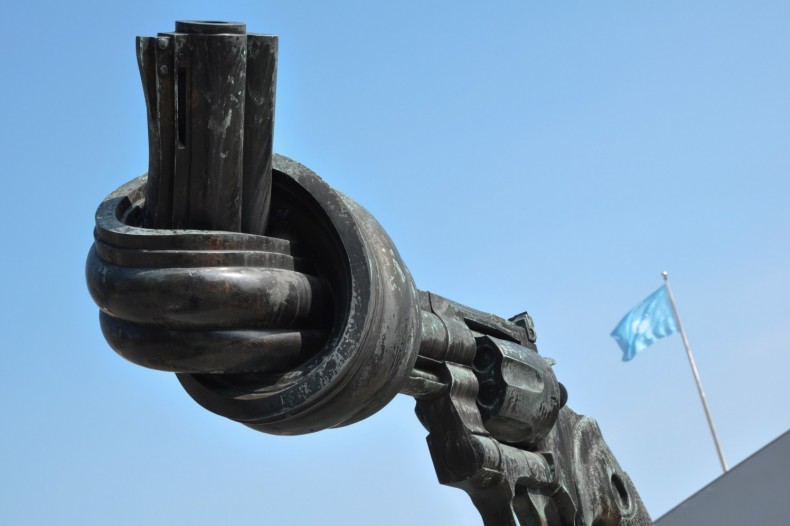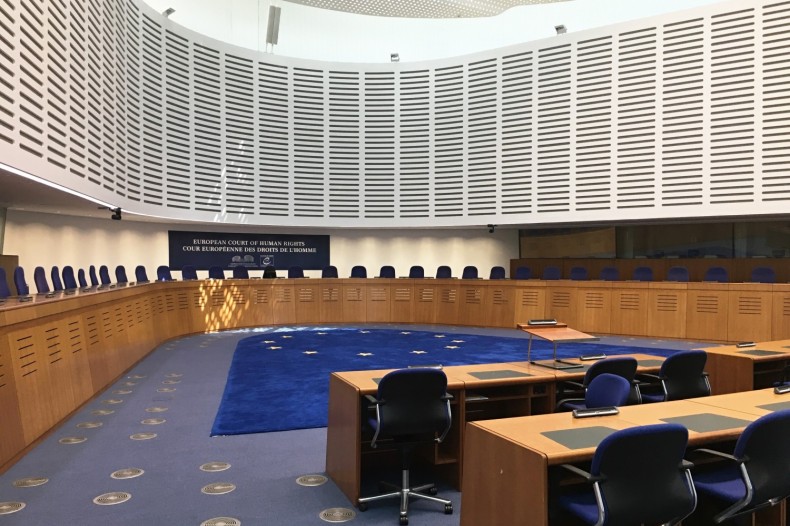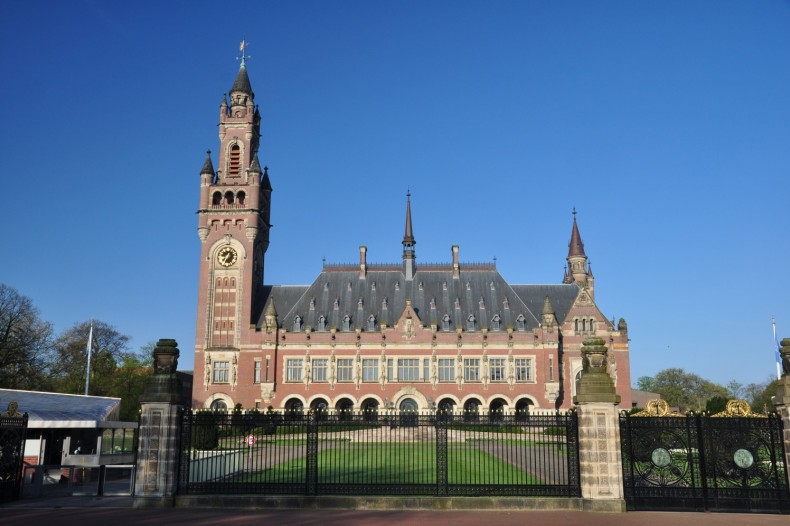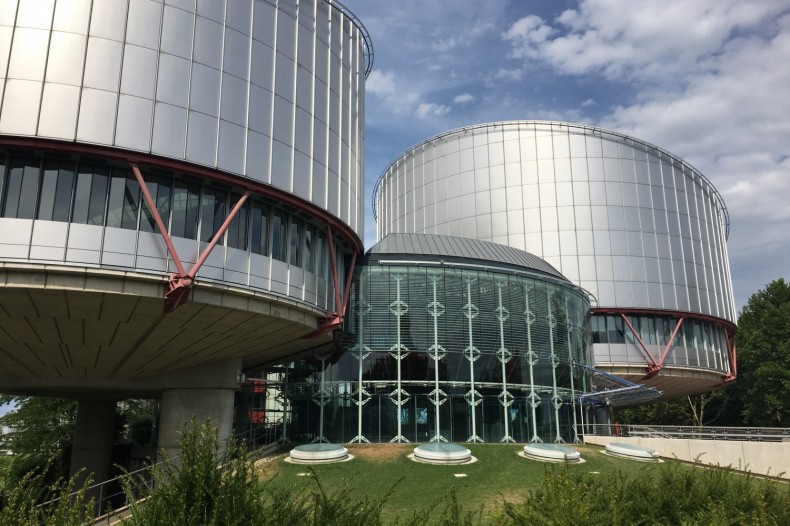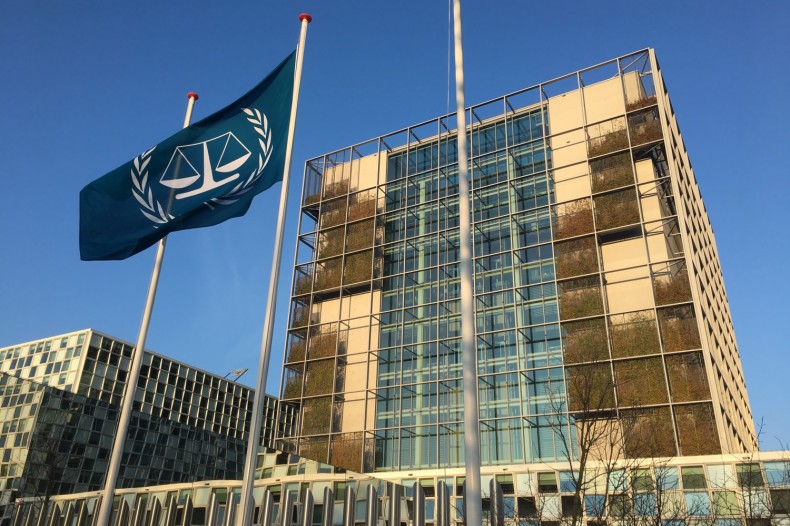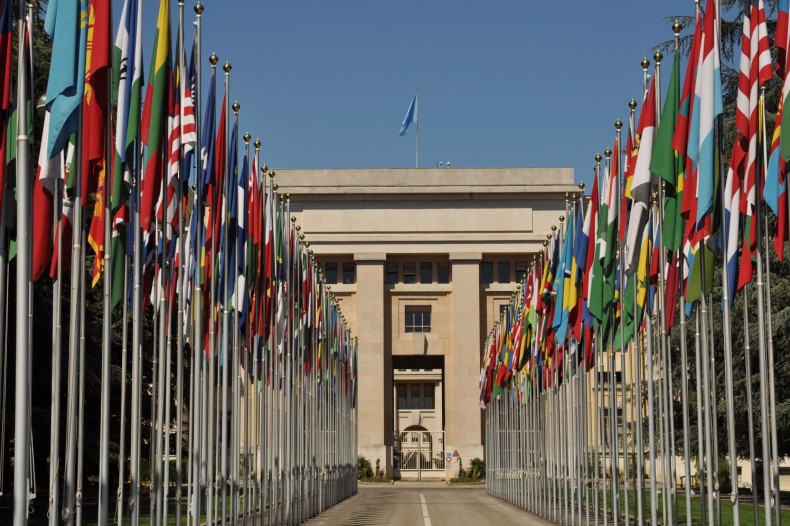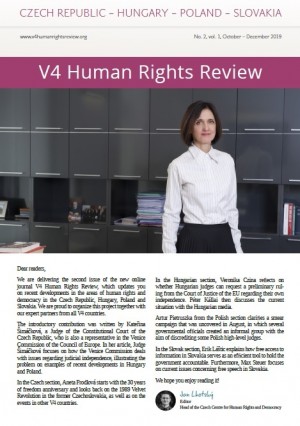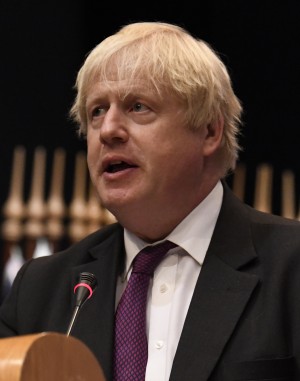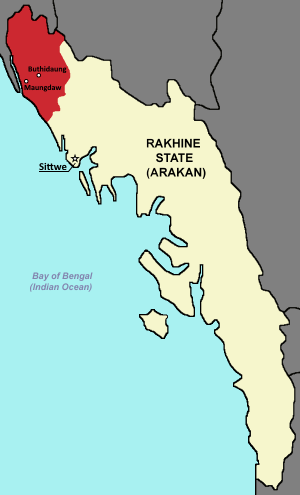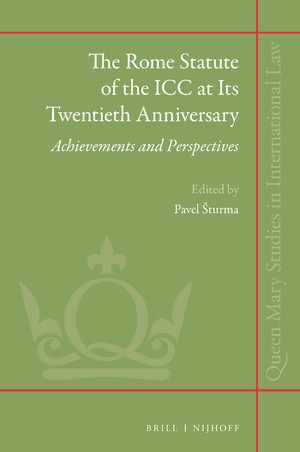Czech Centre for Human Rights and Democracy
The Centre is an independent academic institution monitoring human rights developments both domestically and worldwide, issuing a monthly Bulletin, as well as organizing conferences.
On 20 February 2020, seven countries, the Organisation of Islamic Cooperation, the League of Arab States, and another 34 applicants, including NGOs and distinguished scholars were granted leave to be amici curiae (‘friends of the Court’) in the determination on jurisdiction of the International Criminal Court (ICC) in the Palestine situation. They will express their position on whether the ICC has territorial jurisdiction pursuant to Art. 12 of the Rome Statute over the crimes committed in the West Bank, Gaza Strip and East Jerusalem.
Preliminary examination and a struggle of the Court
The situation in Palestine has been subject to a preliminary examination by the Office of the Prosecutor (OTP) since 16 January 2015. On 20 December 2019, the OTP concluded that the issue of territorial jurisdiction needed to be resolved before a commencement of a formal investigation. In its request of 22 January, the OTP asked the Pre-Trial Chamber (PTC) to rule on the issue. The decision has been praised by some as a sign of prudence and criticized by others as a cowardly move. Effectively, it shifts the burden of such an emotionally, politically and legally difficult decision from the executive to the judicial branch of the ICC.
The Supreme Court of the United Kingdom made a bold step, which can re-write textbooks. In the R v TRA case, the Court held that acts of torture under the UN Convention Against Torture can be committed by non-state armed groups, challenging the conservative state-centric view. How was the judgment received? What is the way forward?
The end of the decade was marked by the much anticipated judgment released by the United Kingdom Supreme Court (UKSC) in the R v TRA case. The UKSC, then still presided by Lady Hale, decided that for the purposes of domestic prosecution, the definition of torture under the United Nations Convention Against Torture (UNCAT) can be understood to include torture committed by officials of non-state armed groups. Such interpretation confirmed a broader understanding of who can commit torture under the UNCAT that stretches beyond the more conservative state-centric model.
In October, Turkey launched “Operation Peace Spring” in the northeastern part of Syria, which was controlled by Kurdish-led forces. The operation began after President Trump withdrew US forces from northern Syria. The Kurdish-led forces have been a strong US ally against the so-called Islamic State radical group in the past. The Turkish president, Recep Erdoğan, has been strongly criticised for these actions by his Western allies.
Who are the Kurds?
There are between 25 and 35 million Kurds, who are an ethnic group inhabiting parts of Turkey, Syria, Iraq and Iran. Even though there are many members of this minority, they have never been able to create a nation-state.
You can download the winter V4 Human Rights Review here.
We are delivering the second issue of the new online journal V4 Human Rights Review, which updates you on recent developments in the areas of human rights and democracy in the Czech Republic, Hungary, Poland and Slovakia. We are proud to organize this project together with our expert partners from all V4 countries.
The introductory contribution was written by Kateřina Šimáčková, a Judge of the Constitutional Court of the Czech Republic, who is also a representative in the Venice Commission of the Council of Europe. In her article, Judge Šimáčková focuses on how the Venice Commission deals with issues regarding judicial independence, illustrating the problem on examples of recent developments in Hungary and Poland.
The British people voted for the withdrawal of the United Kingdom (UK) from the European Union (EU) in the 2016 referendum. The UK should have left the EU by the end of October 2019. How did the individual negotiations go and what were their results?
The referendum about Brexit
As a member state, it is possible to leave the EU on the basis of a democratic decision, which is approved by the public, as it is governed by Article 50 of the Treaty on European Union. This is exactly what happened in the case of the UK. The referendum took place in June 2016. The official turnout was 72.2 % of possible voters. 51.9 % people voted to withdraw, and conversely, 48.1 % people voted to remain in the EU. David Cameron resigned from his post as Prime Minister after the results went public. He was succeeded in his post by Theresa May.
Two years ago, in 2017, the Rohingya refugee crisis in Myanmar engendered international attention. The crisis was all over the news and social media, and for a moment, the entire world seemed to be coming together to attempt to resolve the crisis and alleviate the human rights violations. Today, although the crisis is no longer anywhere near as prevalent in the media, the Rohingya are still facing extreme persecution from those in charge.
The Contemporary Problem
Today, approximately 600,000 Rohingya are still living in reprehensible conditions in Myanmar according to the United Nations’ (UN) new report released to the public in September 2019. Additionally, although genocide has not been officially named, numerous UN officials from their recent fact-finding mission and report on Myanmar have stated that the Rohingya still living in Myanmar face the “threat of genocide.”
The Head of the Czech Centre, Jan Lhotský, published on the International Criminal Court in relation to the crimes committed in Syria. The contribution titled, The International Criminal Court and Syria: the Absence of Jurisdiction and the Pressing Need for International Criminal Justice, was published in 2019 in the prestigious Dutch publishing house, Brill, as a chapter in the book, The Rome Statute of the ICC at its Twentieth Anniversary: Achievements and Perspectives. The article focuses on existing institutions monitoring crimes committed in Syria and northern Iraq, analyses the current possibilities to try persons responsible for international crimes and discusses the desirability of involving the International Criminal Court or another ad hoc criminal tribunal.

